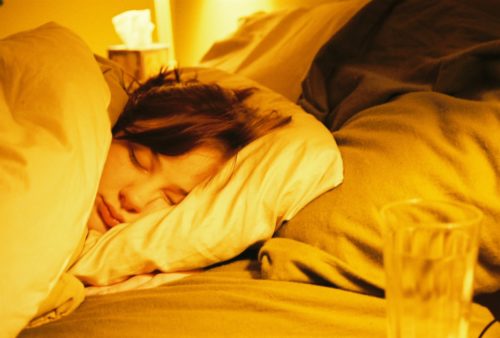For most college students, a decent night of sleep has essentially become an unobtainable luxury.
We have a broken system. Eight hours of sleep needs to be considered as a right, not a privilege. We need to put an end to big exams and the phone alarms. We need “a sleep revolution,” or so says Arianna Huffington of the Huffington Post in her announcement of her “Sleep Revolution College Tour,” which began on Friday, April 9, at the University of Denver.
The famed editor-in-chief’s expansive plan on ending sleep deprivation has started its own movement. First, it was her TED talk “Arianna Huffington: How to Succeed? Get more Sleep,” then the release of her own book “The Sleep Revolution,” and lastly the offspring of her enthusiasm — the “Sleep Revolution College Tour.” Huffington said in her announcement, that the purpose of the tour is to “raise awareness and spark national conversation about the importance of sleep” in college. However, its actual itinerary sparks a very different — but crucially important — conversation about the college system and college students alike.
What exactly happens at one of these events? To start, it is not directly hosted by Huffington, the cheerleader to the cause, nor by scientists or specialized doctors in the field. The Post’s partnerships with a multimillionaire class of brands like Sleep Number, Spotify, Headspace, JetBlue and Marriott are the ones who will host “sleep fairs” and slumber parties on campus to essentially market their own products. Their donated products include “pajamas, slippers, eye masks, Headspace memberships, dream journals, ‘The Sleep Revolution’ and white noise machines.”
On the other hand, the online news blog features a fraction of substance to their event, including “a panel of sleep experts…and sleep-themed blog posts and videos from students and professors.” This is Huffington’s vision of a future with better, well-rested college students.
Through all the extravagance, the commercial objective behind the Huffington Post’s “Sleep Revolution College Tour” becomes clear, but the deeper underlying problem needs to be addressed. The Journal of Nature and Science of Sleep reports about 70 percent of college students lack adequate sleep, which can have detrimental effects on academic performance and overall health. Yet, owning a dream journal will somehow get our much needed eight hours of sleep? The solution sounds comedic and unrelated.
Huffington and her corporate partners shed light on one of many cultural obstacles. College students are not taken seriously, and neither are the issues they face. Of course, a chance to hang out and get free stuff on campus sounds pretty entertaining and exciting. It still raises some questions as to why, at the same time, the donations at the “sleep fairs” dominate the sleepless night conversation.
To put this more into perspective, Huffington discussed why college students lack proper sleep in her announcment. One of her claims is “FOMO — or fear of missing out” on notifications and anxiety away from our smart phones. Many college students can attest to that feeling, but her team made it sound like it is innate response. She contradicts her concern by reaching out through social media,and encouraging students to use different, childish hashtags to describe what they do before and after they sleep and what is sitting on their nightstand. One only wonders where #OneNightStand will take us.
All in all, there is more depth to the sleep issue for students in academia then just dumbed down stigmas, pun-sounding hashtags and slumber parties. The causes and solutions for sleep deprivation in college and beyond are complex.
Studies, part-time jobs and extracurriculars are a dizzying mix. A student’s circadian rhythm or possible sleep disorders are not accounted for in registering for classes. If the college system, students and researchers alike can work together in educating, promoting proper reforms and understanding the problem firsthand, we can promote the standard for making real changes across campuses



